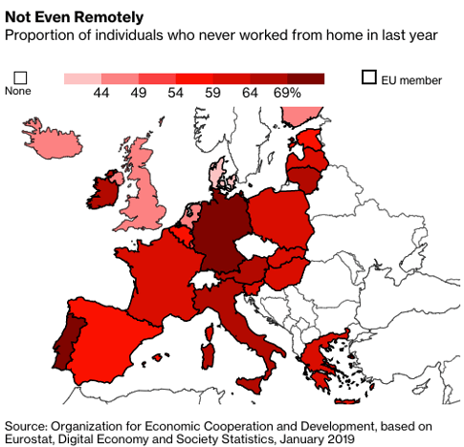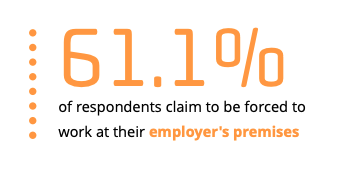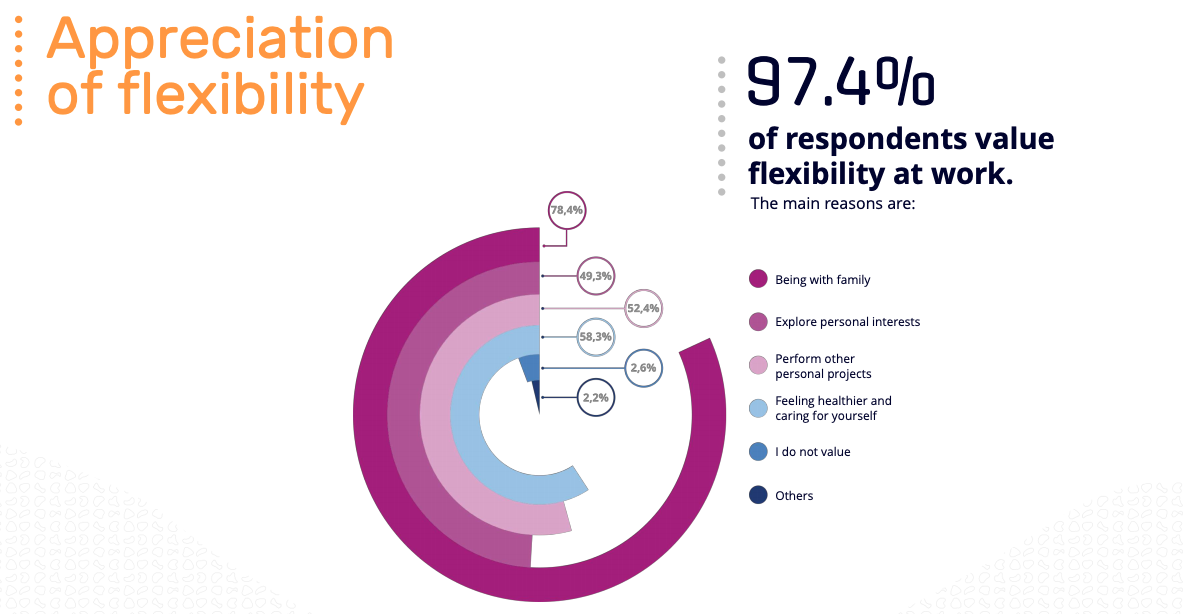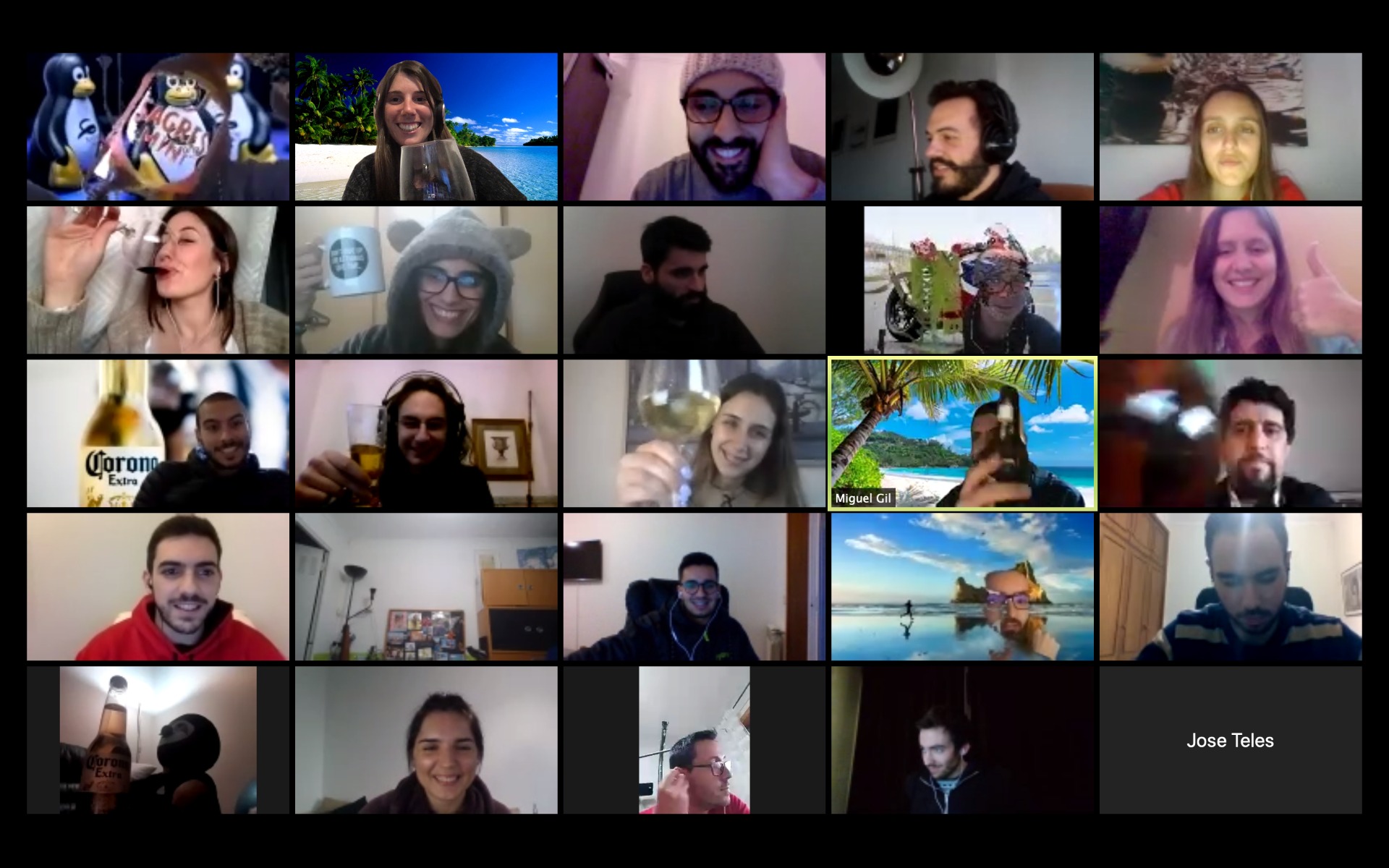Let's make a bet?
I bet $250 that you are reading this at home.
Right?
Exactly… Now you owe me $250.
I will leave my bank details at the end of this blogpost so we can organize the money transfer.
Now…. jokes aside, the only reason why I will make some extra money through these sure-winning bets is merely because of the famous COVID-19, or how we all like to call it “Coronavirus”.
Since this virus has emerged in a city called Wuhan, China, the world entered in shock, panic and hysteria. It has compelled many governments to lock down their populations to a degree unimaginable until recently.
From that moment on, we have seen: thousands of people dying; various business closing; historical decrease in the corporate earnings; the end of the 11-year American bull market with the decline in the American stocks of more than 20 percent from their peak; the halt of all major sporting events; the cancellation of conferences; the banning of flights; the transition of the toilet paper 🧻 becoming the new gold; and the great diaspora of office workers who have been sent home to, in some logical sense, work at a presumably safe environment, away from nods of infection.
Yet these measures of lockdown, sending workers home, cancelling flights, conferences and sports events seem trivial in the face of the rising death toll…
It’s horrible I know. Indeed, we are living in harsh times. As stated by The Economist: “It will probably cause the most brutal recession in living memory.” And I am sure (I would make another bet actually) that you are constantly reading about these pernicious issues every day, right?
So, today we are not going to be talking about this Kafkaesque nightmare, and the harm it has caused or will cause further in the future.
As you might have guessed from the title, yes, today we will be talking about home office.
Quite a common topic at the moment I know.
But if I can just put in my two cents' worth, I think we are living in a revolutionary moment, when it comes to the concept of “Home-Office”.
For the past years, everyone has been predicting that one day home-office would become the new normal. However, no one anticipated the launch of the world’s most aggressive and large movement of work-from-home
(Credits to: COVID-19)
Amid the coronavirus outbreak, companies around the world are mandating their staff adopt a work-from-home policy, to eschew the spread of COVID-19, regardless if they are ready or not.
In matter fact, majority of companies are not ready at all, and the only sentence that pops up in my head when I see every company sending their workers home, is…
That is often easier said than done.
According to figures compiled by the OECD (Organisation for Economic Co-operation and Development), 6 out of 10 individuals in the European Union hadn’t worked from their home in 2018. Even though for modern tech companies, the concept of remote working is unquestionably already in place, like in Syone, the situation is likely to be very different for smaller companies.
In an article published by the Bloomberg, Europe Isn’t Ready for a Full Work-From-Home Lockdown, shows that in Portugal 69% of workers never worked from home in the previous year.

If we do the math right. This will not end up well right?
Exactly…
Moreover, internet might not be as good, technology for instance doesn’t always work, children (also in lockdown due closing schools) may be running around or employees sometimes lack the right equipment. But again, repeating what is stated above, the majority have NEVER worked from home before! For me that is alarming.
So, am I against home-office? No. In matter fact I am a true home-office advocate.
But I see this revolution as a pell-mell revolution.
Last year it was rare to find a company that had a home-office policy. According to the report on work flexibility in Portugal, published by Polar Insight in Collaboration with Universidade Católica Portuguesa, states that: “61.1% of respondents claim to be forced to work at their employer's premises”. Various managers still believed that employees are more productive at the office. Now, because of the COVID-19 paroxysm, companies around the world will finally have to confront their abhorrence about home-office and test that hypothesis at scale. Simply to prevent the spread of the virus as well as to eschew the complete halt of the business.
 Source: Report on work flexibility in Portugal, published by Polar Insight in Collaboration with Universidade Católica Portuguesa,
Source: Report on work flexibility in Portugal, published by Polar Insight in Collaboration with Universidade Católica Portuguesa,
From my standpoint, taking these measures without proper plan and well-thought strategy, is just like bringing a peashooter to a gun fight. Getting employees who never worked remotely, to work from home, without any sort of plan can be a costly.
What can companies do then? You might ask me. After-all this is a pandemic and this diaspora of home-office workers is inexorable.
Yes, indeed you are right. But a proper planning as onerous as it might be, it is crucial. So, in order to answer the question, what companies should do is simply plan this transaction and make sure that every employee has every requirement I share below:
So here it goes.
The requirements to have an effective home-office system (and also some Hubspot’s tips)
Fortunately, Syone does have the concept of remote working already in place and I belong to the group of 31% of workers who have worked from home in the pasts years. Therefore, I will be sharing these requirements based on my experience as well as share HubSpot’s tips, and their ultimate guide to telecommuting.
In order to be productive, in my humble opinion, there are essential requirements that all remote workers need to have:
-
A computer
Obviously no need of explanation here. -
A good internet connection
If you do end up working a lot from home, invest on a good internet provider. It can be quite frustrating to have the audio sound like a scratch cd during a conference. -
Chat and conferencing applications
It is important to be connected with your teammates, regardless how distance you are. Try to be connected to them during your work-hours. Use an application like Microsoft Teams and see your team’s productivity skyrocket.
-
Chat with your colleagues
Even though you are physically far away from your work colleagues that doesn't mean you shouldn't chat with them just like you would do at the office. Do not strict yourself to only talk about work. Talk about football, movies, news, the weather. -
A designed workspace
For me, this is the most important requirement. As the boundary between work and home is blurred. It is imperative to have an established workspace. Make it comfortable, as you will be spending many hours there. Design it in a way that makes you excited to start the day and go work in your “office”. This will boost your focus and allow you to detach at the end of the day. -
Create a schedule and follow a strict routine
I agree that by being home, it can be hard to manage your own time and stay organized. As the Business Harvard Review states: “Develop rituals and have a disciplined way of managing the day. Schedule a start and an end time. Have a rhythm.” After-all you are at home. Comfortable. That's why it is important to create a schedule and follow it strictly. -
Start early
Well this one… as the old adage says, “Everyone is different”. Some people are more active the morning, others at night, but all of us fall into three categories, known as chronotypes. Basically choose a time to start working and stick to it. -
Pretend like you are going to the office
This tip was given by a friend of mine that works full-time remote and I’ve been implementing it since Syone sent my department home and trust me it makes a difference. DRESS UP!! DON'T STAY IN YOUR PIJAMAS! Just like you were going to the office. -
Take breaks
Yes we are at home in our comfort zone, therefore, on paper this means we will have less distractions, which leads to greater productivity, which by its turn it can make harder to take a break. Remember take a break and recharge your energy!!
That being said, these are my takeaways from my experience working remotely and if you don't want to take my word for it, I strongly advise you to read the report published by Hubpost, 2019 Remote Work Report. Or read the 19 blogposts they have on remote work, where they share experiences, tips, the pros and the cons about remote work. Or if you are out of time simple read the ultimate guide to telecommuting.
By following those requirements mentioned above, I bet $3000, just kidding, enough of bets.
But as I was saying by implementing these requirements every employee will see the following benefits when adopting a home-office policy:
1) Productivity will increase
2) Break-through ideas will come more often
3) More time to do other things
4) Less money and energy spent
5) Flexible hours

Source: Report on work flexibility in Portugal, published by Polar Insight in Collaboration with Universidade Católica Portuguesa,
Syone’s example
At the present moment, just like many other companies, Syone is working fully remote and everything is working perfectly. As if this revolution of remote work never happened. Even Syone's CEO, Eduardo Taborda commented:
“Yes, we're living challenging times, but I am somehow surprised on how well this is working. It's amazing how fast we were able to adapt to this all new situation and in fact we’re not experiencing any difference in the company’s performance by moving the whole company fully remote. I am truly proud of every Syoner”.
Business is working as usual, operation haven’t halted, meetings did become more effective and teams’ relations are stronger than ever. If you ask me, I would also never expect that this would happen so efficiently.
To get a better picture of this success story, I will be sharing 2 examples:
- At the present moment Syone is doing a certification process of ISO 27001, where couple of classes are included in this certification process. Amid the coronavirus outbreak, and the forced transaction to home-office, Syone decided to obtain these classes in fully remote mode. A virtual class composed by 15 people (13 Syoners, 1 Instructor, 1 Assistant of the process). Very challenging... But guess what? It was a success and Syone is closer to acquiring the ISO 27001 certification.
- Since Syone went fully remote, the company decided to create the After Work Virtual. Where every Syoner meets up virtually, from the comfort and safeness of their homes, to share a drink with their fellow colleagues. What a way of not letting distance stop them of having fun all together right?

That being said, as a nutshell, I am hubristic about this revolution, being it pell-mell or not. Working remotely can be an outstanding experience, however, it is crucial to consider the reality and complexities of doing it before you begin. This crisis novelty offers a chance to experiment with new ways of doing things and most importantly to question the ideology of old habits. Chief executives should not be immune to the opportunity and should embrace such revolutions, just like the Chief Executives of Syone did.
Aaaahhh I almost forgot. My bank details are:
GB38 REVO 0099 7044 6149 30
And for those who won the bet do not hesitate to send me your bank details and I will be sending you the $250... a bet is a bet.










